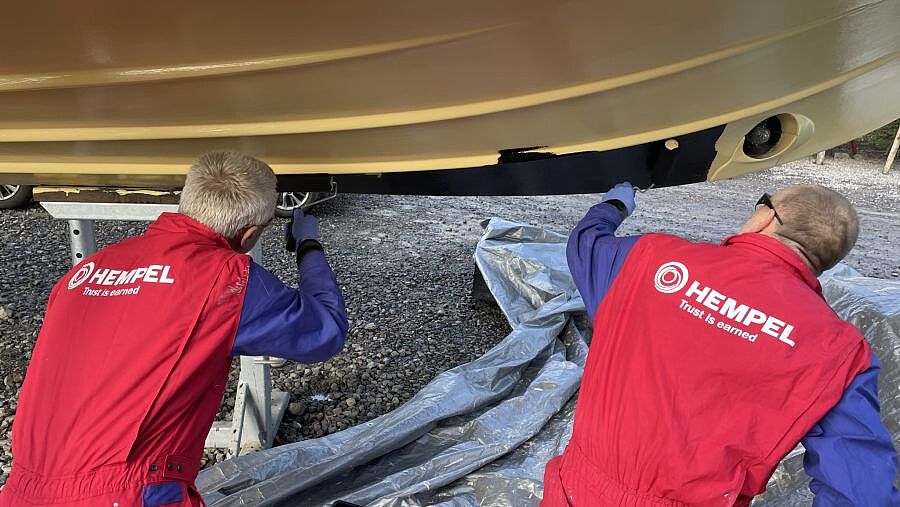Five steps for responsible boating to safeguard our marine environment
As boating enthusiasts, it is our responsibility to protect the marine environment that provides us with endless opportunities for enjoyment and recreation. Being aware of the potential environmental impacts our boating activities can have and taking steps to mitigate them is of paramount importance. There are several crucial steps that every responsible boat owner and marine enthusiast should embrace. From proper antifreeze disposal to preventing the spread of invasive species, these practices can collectively help preserve the ecological balance and natural habitats of our waters.

1. Antifreeze disposal
Antifreeze is an essential component of any boat's cooling system, but unethical disposal can have detrimental effects on the environment. It contains toxic chemicals that can harm marine life and contaminate water sources. Therefore, it is crucial to dispose of antifreeze responsibly and the following steps can be taken:
- Collect and store used antifreeze in a designated container to prevent spills or leaks.
- Check local regulations for proper disposal methods. Many marinas and recycling centres offer programmes for antifreeze recycling.
- Avoid pouring antifreeze down drains, into waterways, or onto the ground to prevent contamination of water sources and soil.
2. Preventing the spread of invasive species
Invasive species pose a significant threat to our marine ecosystems. Any non-native organisms can disrupt the natural ecological balance, out-competing native species and causing serious damage. There are a number of measures that boaters can take:
- Clean your boat thoroughly before moving it to a different body of water. Remove any visible plants, animals or mud from the hull, propellers and equipment.
- Drain all water from your boat, including bilges, and don’t forget the same with containers such as bait buckets for fishing, before you leave a waterway.
- Allow your boat to dry completely before launching it into a different body of water. Invasive species often hitch a ride on wet surfaces.
3. Proper disposal of paint and non-bio antifouling agents
Antifouling paint is essential on vessels left in the water to prevent growth of marine organisms on the hull, and in turn this reduces drag and improves fuel efficiency. The disposal of old non-biodegradable antifouling agents and paint can obviously harm aquatic life, so handling these substances responsibly is important.
- Avoid scraping or sanding off old paint or antifouling coatings into the water. Instead, capture the residue and dispose of it as hazardous waste.
- Check with local waste management facilities or marinas for designated collection points or recycling programs for old paint and antifouling agents.
- Consider switching to environmentally friendly alternatives, such as non-toxic or biodegradable antifouling agents, to reduce the impact on marine ecosystems. Furthermore, this complies with increasingly strict regulations regarding the use of harmful chemicals, while still being able to enjoy the benefits of long-lasting protection against fouling without compromising water health.
4. Recycle old sails
As an integral part of any sailing boat, sails have a limited lifespan. Instead of sending them off to landfill, choose to recycle.
- Contact local sailmakers or sail lofts to enquire about sail recycling programmes.
- If the sail is still in usable condition, consider donating it to sailing schools, community organisations or youth programmes.
- Repurposing old sails as bags, upholstery, or even artwork can be a creative way to give them a new life. Consider checking online to find a local organisation that creates and sells these for charity.
5. Proper flare disposal
Flares are essential safety devices but disposing of expired or unwanted flares can be challenging.
- Contact your local coast guard or marine safety agencies to find out more about disposal procedures. They often conduct flare disposal events or can direct you to the nearest safe designated disposal location.
- Never dispose of flares in regular rubbish bins or by setting them off unnecessarily. Improperly disposed flares can cause serious accidents or false distress signals.
Being a responsible boater is not just about enjoying time on the water, but also about protecting and preserving our marine habitat. By following advice and acting considerately we can make a deliberate contribution to maintaining the health of our oceans and waterways. By more boaters supporting these practices it is an example for others to do the same, ensuring that future generations can continue to enjoy the boating lifestyle in a thriving marine environment.
